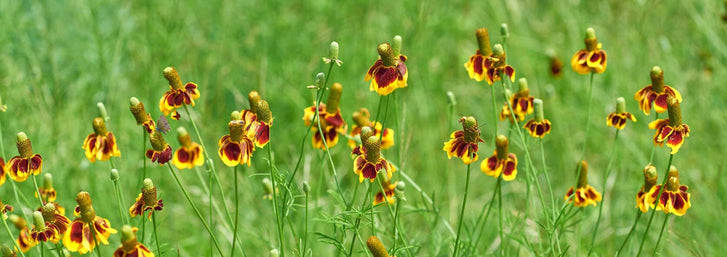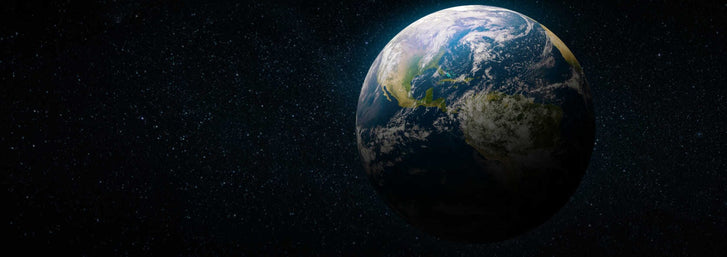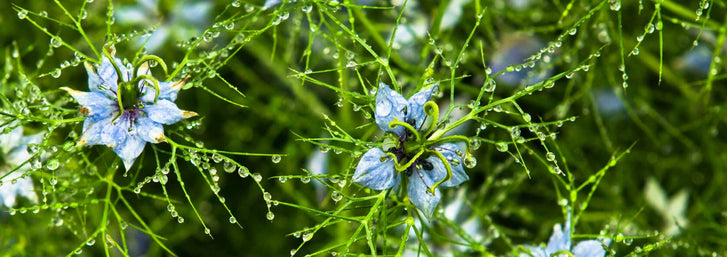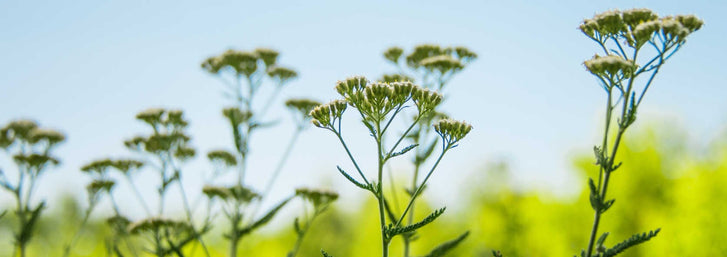
Kat Jones

We thought it would be helpful to our readers to see the questions and answers to many related raw food diet and wheatgrass questions. Below is an email conversation between two wheatgrass & raw food enthusiasts. (read thread top to bottom)
-----------------
Hi Charles,
My name is Gabrielle. In a conversation I had earlier today with KK, she spoke so highly about your knowledge and the health project you are working on. She suggested asking you in reference to some scientific studies proving the benefits of raw food dieting on people. I would love to know also about your business and how you are running.
Best,
Gabrielle
----------------
Hello Gabrielle -
Thank you for your note. KK and I have been colleagues for many years, I appreciate her faith in me.
I am not sure exactly what information I might have that would be of use to you. My work is related to the simple but profound relationship we have with what we, individually and collectively, choose to put into our mouths. That fact has changed our planet and we are now at real risk. The repercussions of this are affecting us in every category of activity, from health to agriculture, to the environment, to social and economic justice, and so on.
We cannot forget to mention the terrible difficulties we have created for all fellow species, plant and animal, that inhabit this fragile droplet whirling in space. Where will it end? it appears we have a few decades at most to reorganize our lifestyles to bring about a 'soft landing', or experience a hard one should we not change our ways of consumption in all areas. Only then will we see whether humans will be allowed to assume their proper role as 'stewards' of the earth rather than 'spoilers'.
For me, diet is a focal point, which from there spirals out to touch many current issues we face from a medical structure out of control and invalid in many ways, to how we rearrange our personal carbon footprint, to redressing the terrible suffering we inflict on other species. I also believe that fundamentally, whether we are overweight 'westerners' or underweight 'third world-ers', we are all malnourished - and this is a primary problem to address, as so many other issues stem from it. Our physical and mental abilities have been seriously eroded by an improper diet. This will defeat us in the final analysis.
To those ends, my work is directed in practical and utilitarian ways that hopefully others can assess and adopt should they find them useful and valid in addressing problems we individually and collectively face.
Not sure what else to say on this matter, other than that now is an important time for like minded people of all persuasions to come together. I wish you the best of luck in moving forward with your visions and dreams.
The raw / living foods movement is one very basic and simple way we can change a behavior, i.e., eating, that will bring about change somewhat the same way millions of blades of grass growing under concrete roads can actually lift and break them!
Again, best of luck in your efforts. Please feel free to contact me should you wish further discussion.
Charles
-----------------
Hi Charles!
Nice to be in touch with you!
Do you advocate wheat grass juice? Do you think it is digestible for people! Or why do you think is necessary? Isn't fruit and greens enough when they are organically grown?
What else do you feel brings the solution to the problem in your view?
I like to keep things simple if possible! I feel very comfortable with a natural hygienic approach.
I am looking for scientific documents proving the benefits of fruits and greens on individuals health! Which ones do you find most important? Do you have access to any e-docs I could read?
Thanks for your response.
Gabrielle
------------------
Hello Gabrielle -
Thank you for your return note. since you like to 'keep it simple', I suggest that all the answers to your questions are really contained in Dr. Wigmore's several books. specifically, though, I would answer your questions as follows:
1) I advocate wheatgrass juice or barleygrass juice strongly. It is one of the most nutritious substances available to us in these times. If one cannot tolerate wheatgrass (too sweet for many) then barleygrass is a great alternative. Also, wheatgrass seems to be an excellent 'medicament' for soft tissue and organ problems while barleygrass seems to work very well for 'arthritic' and bone type issues in my experience.
2) The juice is very digestible for people and provides many many benefits in juice form whether used as a drink, or implant. The effect implants have on helping the liver to cleanse cannot be underestimated. It is important to grow the grass in soil if you do indoor gardening, and it is best if you add Azomite or other mineral supplements to the soil until you get your composting system going. This is because the food we eat is no better than the soil it is grown in, and since the 1950's, we have seen a spectacular fall in the nutritional content and value of all commercially grown foods, even organic in many cases. This is due to fertility issues with the soil. Wheatgrass juice is the best way to get elements, known and unknown as yet, that we need for healthy living, especially if you use enriched composted soils that have been carefully nurtured. Wigmore really addressed this problem very well in her Hippocrates Diet book.
3) I do not think just organically grown fruits and greens are enough in this day and age. A close reading of Dr. Wigmore's system clearly shows her inclusion of living (i.e., fermented, sprouted, blended) foods of many types, and sea vegetables, in addition to fruits and vegetables. she also strongly encourages eating 'wild' foods because they struggle to make their livelihoods in ways 'domesticated' plants do not. in this struggle their nutritional value is much improved. Read the book 'The Secret Life of Plants' for information of interest.
5) I believe all the above are critical additions to the diet, especially as it relates to getting sufficient oils and other enzymes in the diet. Avocados may not be quite enough, so we may need to look to flax seed and fats made available from nuts and seeds such as sunflower, and as enhanced by the making of 'seed cheese' or almond yoghurt, in her system. When we eat this way, we shift our pH to a more appropriate level, and we enhance the flora systems in our gut - really the key to our survival. As Edgar Cayce once mentioned in one of his readings, 'The Peyer's Patches' in the small intestines are a critical enzyme factory in the body we must protect'. We do this with a proper way of building a composting system in our own bodies through foods judiciously selected and combined properly, while holding a respectful attitude for the gifts we receive from this beautiful earth. I think Chief Joseph of the Nez Perce had profound things to say in this regard.
I believe that we absolutely MUST eliminate processed foods from our diets, as it is having further disastrous impact on us, and all following generations. Read Dr. Weston Price (Price - Pottenger Foundation) for the background on this. you can check out their website.
Authors I recommend include E. Howell - Enzyme Nutrition (info about enzymes), M. Fukuoka - One Straw Revolution (info about healthy gardening/farming) and Dr. M. Gerson - The Gerson Therapy (info about nutritional treatment of disease from a medical doctor's experience). They each give real information from real world experience and insight. From these masters you can find many further avenues of study.
Best of luck in your research!
Charles
--------------------------
Thanks Charles,
I appreciate our point of view. Could you explain your point of view further and why organic produce isn´t enough!?
What do you think about fasting on water! do you have any direct experience with it?
What type of testing do you use for the client? Also, is there any regulating body for juice therapies or can anyone just cure people with juices in the US?
Thanks again.
Gabrielle
Hello Gabrielle -
In receipt of your note to me I would answer your questions in the following manner, based on my reading and experience:
1) You asked me to explain my point of view further. Pretty open ended question, but I will add this to try to put my previous brief comments in perspective. We, in the west, have lost control over our food supply. The way the food chain is now organized is very very very very precarious, to say the least. Read 'The Omnivore's Dilemma' or 'Fast Food Nation' for extremely useful information. This industrial (and even the 'new organic') model is providing us low-quality nutrition at tremendous environmental and spiritual cost worldwide, though at the register it seems 'cheap'. It is unsustainable.
I believe that we can turn it around by every individual growing food in gardens, on decks, in pots indoors, on roof tops, or in community gardens, or, if so lucky, a small mixed farm somewhere. Remember, during WWII in the US 2/3 of our fruits and vegetables came from so called 'victory gardens'. We all need to make the connection between the food we eat, and where it comes from. Currently, if you are in the US, you will not like the answer to that question. At the least, support your local farmer's markets when you can.
2)You ask why I think 'organic produce' isn’t enough. Well, this is a pretty broad category as well, so I will take the liberty to say that I think 'organic produce' trucked in from the San Fernando valley or Mexico is not a good trade off, if you live somewhere other than California or Mexico where the food originates. But you are asking, I think, about food value. If you do not know the source of the food you eat, you are simply gambling. If you are eating 'organic produce' that is grown from hybrid seed, on soil worked with machinery, you are probably not getting full value food. Food then shipped in is picked green, handled, and 'refreshed' at the grocery store or supermarket over the period of several weeks. That food is constantly deteriorating in nutritional value, from a deficit to begin with. That is why I so strongly recommend that people include freshly made wheatgrass or barley grass juice grown from locally grown organic seed of known variety in their own home under their own control. At least in this way you will be getting a complete food in its freshest and most nutritious form.
3) Fasting on water - I have fasted for as much as 7 days on water, and 23 days on water, rejuvelac, and barley grass juice. I am not a fan of water fasts. I found them very tough on my system, and I found that the best results for me were short 3-day juice fasts, as recommended by Dr. Wigmore among many. Ideally, for me, juice fasting one day per week, four 3-day fasts in a year, and one week in a year is the best hygienic regime. Calculate it out: in this way you 'fast' about 70 days in a year, or over 2 months! I think this method is like shaking a jar in which there is sediment. You shake the sediment into solution, and in our case, the body hopefully will eliminate it as it rejuvenates, cleanses, and strengthens itself. For me, this is a very very beneficial routine that allows me to continue working at my usual tasks in life while carrying on internal work as well.
4) Testing for clients - well, I suggest some very basic ones over time. I weigh people ONLY ONCE per week. I test some flexibility / bending, body mass index, and pH of saliva and urine. I also monitor blood pressure. That’s about it, but I would recommend stool samples if there is a laboratory that can really do good testing for parasites. I also have a 'subjective feelings' set of questions I ask.
5) Juice therapy in the US - this is and has been a very contentious issue. Morris Fishbein, one of the early founders and 'bigshots' in the American Medical Association, actively attacked therapies outside the allopathic model. The book 'The Gerson Therapy' is very good, along with books about Hoxey, Naessens, and Caisse. There are a few medical doctors that have really stuck their necks out lately, such as Dr. Lorraine Day. You might want to review her website in particular, as she ultimately recommends a diet that is quite similar to Wigmore's. Still, what Fishbein pushed so long ago is still deeply ingrained in the established medical model of the US today. To this day, in the US, this is an area of real disagreement, and legal pitfall. One can have juice therapies, but how one promotes, explains, or employs them is somewhat less than straightforward. I believe in Europe it is much easier to go an alternative route, and even have it covered by insurance.
I hope the above helps answer some of the questions you posed to me.
Best wishes
Charles
Leave a comment
Your email address will not be published. Required fields are marked *
0 Comments
No Comments yet! Be the first to start a conversation
Further Reading

10 Natives of the Southwest USA for Pest Control
Written By Lara Wadsworth The Southwestern United States is a region incredibly unique to the rest of the country. The hot, dry weather can be challenging for plants and animals to thrive without additional help. That is why gardening with natives can ...

Ashleigh Smith
2024-04-157 min read0
Spring Into Action - Celebrating Earth Day
Written By Chelsea Hafer Spring is quickly arriving, and that means that Earth Day is near! Earth Day is the perfect occasion to appreciate our wonderful planet and all that it does for us and think of ways you can give back to it. In this blog post, w...

Ashleigh Smith
2024-04-154 min read0
Everything You Need To Know About Rain Gardens
Written By Lara Wadsworth Rain gardens are quickly gaining popularity for their perfect marriage of utility and beauty. What simply looks like a beautifully landscaped garden is actually a native habitat that serves as a storm drain and water sponge. B...

Ashleigh Smith
2024-04-085 min read1
Northeastern Natives for Attracting Beneficial Insects
Written By Lara Wadsworth The Northeastern United States is rich with American history, but did you also know that it is rich in plant biodiversity? Nature has learned through time how to work in harmony with the various species that attempt to thrive....

Ashleigh Smith
2024-04-086 min read1



